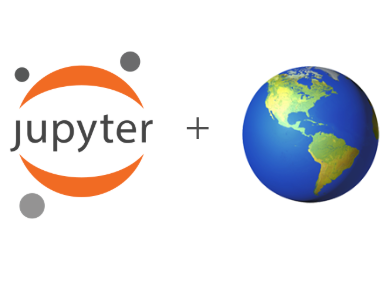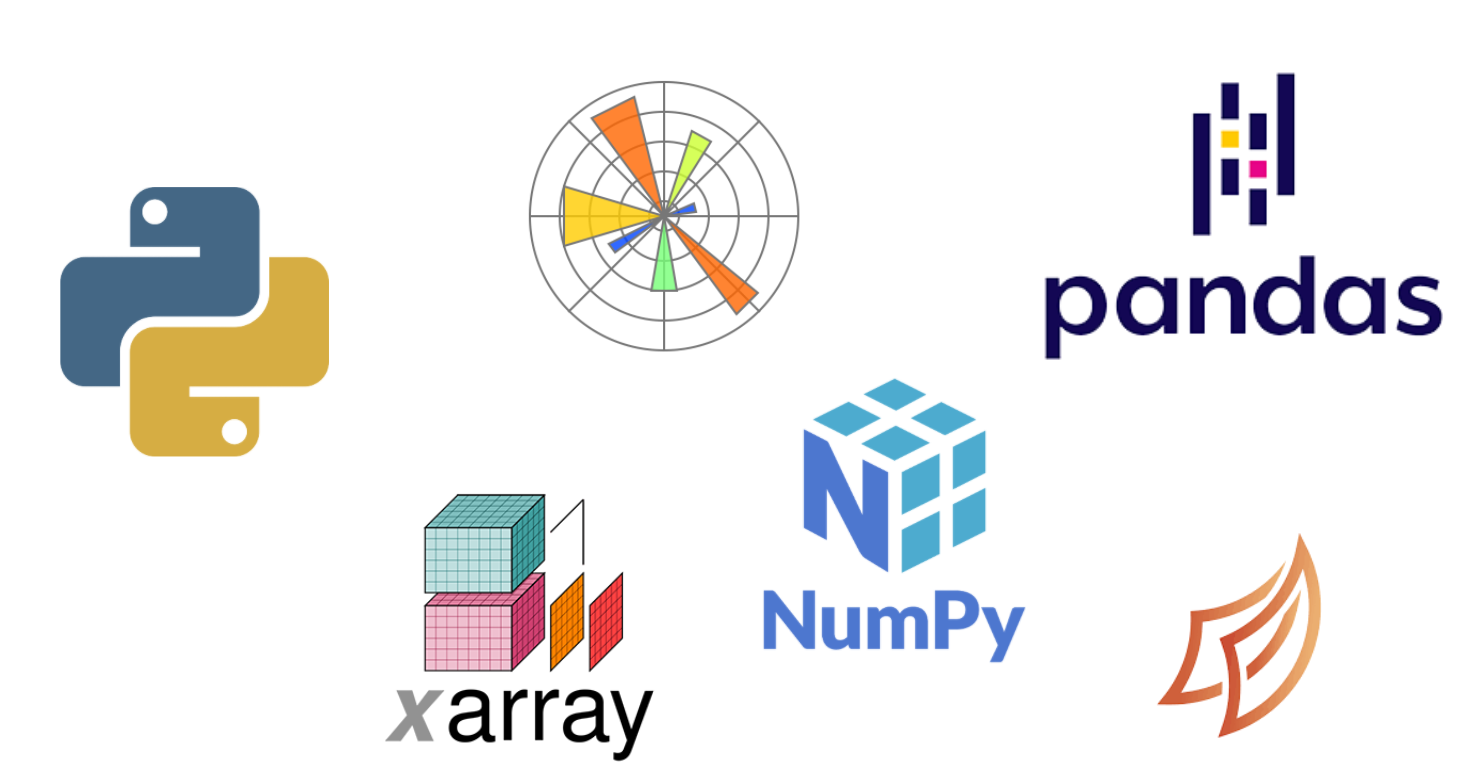Our Projects
In addition to creating and managing JupyterHub distributions, 2i2c also carries out focused development and research projects for interactive computing, with a focus on the Jupyter ecosystem.
If you’re interested in collaborating with 2i2c on a development-focused project, please reach out!
Below is a short overview of the major projects we are currently carrying out.
Executable Books
The Executable Books Project is an international collaboration to build open source tools that facilitate sharing computational narratives using the Jupyter ecosystem.
The primary technical product of the EBP is Jupyter Book, an open source project for building beautiful, publication-quality books and documents from computational material.
Jupyter Meets the Earth

The Jupyter meets the Earth project combines research use cases in geosciences with technical developments within the Jupyter and Pangeo ecosystems. 2i2c collaborates with the Jupyter Meets the Earth Project by providing development around JupyterHub and Jupyter Book infrastructure, as well as assistance in running JupyterHub in the cloud.
JupyterHubs for Education
The Hubs for Education pilot makes interactive computing environments more accessible to educational communities from smaller colleges and minority-serving institutions. It is a collaboration with CloudBank, and the Berkeley Division of Computing, Data Science, and Society. 2i2c offers development and management of JupyterHub infrastructure geared towards educational use-cases, in partnership with these collaborators.
Pangeo Hub Infrastructure

The Pangeo project is a community platform for Big Data geoscience. 2i2c collaborates with Pangeo by developing and running JupyterHub infrastructure for the Pangeo Hubs. This work focuses around building collaborative data science platforms that can draw from large cloud datasets, as well as integrating JupyterHub with scalable computing in the cloud via Dask Gateway.
Open source tools for research and education
2i2c supports and uses projects that are developed, controlled, and owned by the community. We believe in the importance of tools that are built by a diverse community of multiple stakeholders, in order to build tools that are powerful for all of us, and in an equitable and inclusive manner.
Open source, community-driven tools exist across all parts of the data science stack - from the domain-specific libraries you use to analyze data, to the interfaces that allow you to interact with the computer, to the software that orchestrates your workflow in the cloud. 2i2c believes it is crucial that research and education has access to services and environments that utilize these tools across all layers of this stack.
Open tools that we use and support
All of the tools that 2i2c uses in its hubs are open-source and community-owned. A core mission of 2i2c is to give back to these communities by providing support, maintenance, and development. Below are a few tools and projects that we are particularly involved with, though the list of open source projects to which we contribute is much larger.
Jupyter Notebooks
Interactive documents for research and education.
Jupyter Lab
A customizable and extensible data science interface
JupyterHub
Cloud-based computing environments for groups

The PyData Ecosystem
Open Source tools for Scientific Computing
Jupyter Book
Interactive, beautiful books with Jupyter
Dask
Advanced parallelism for analytics